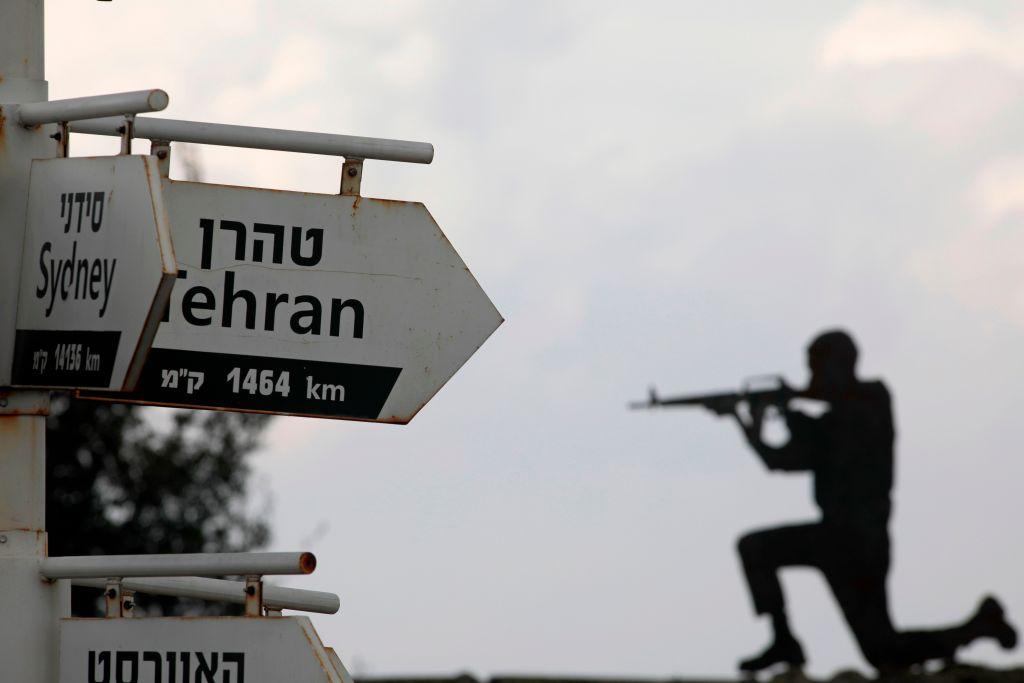Iran and Israel have been at loggerheads since the transformation of Iran into an Islamic republic more than four decades ago and each has persistently viewed the other as a major threat to its national security. Iranian leaders have denounced Israel’s occupation of Palestinian lands and stood by the Palestinian cause. Their Israeli counterparts have vigorously sought to stunt Iran’s regional influence and nuclear program, while preserving Israel’s status as the only nuclear power in the Middle East.
In recent years, the two protagonists have engaged in a shadowy war. Iran’s new hardline president-elect, Ebrahim Raisi, and Israeli Prime Minister Naftali Bennett now insert a new catalyst into the hostile relations.
Raisi is an ardent follower of the founder of the Islamic Republic of Iran, Ayatollah Khomeini, and holds a common position with the supreme leader, Ayatollah Ali Khamenei, in his opposition to Israel. He has reaffirmed his longstanding view of Israel as a cruel occupier of the Palestinian territories, including Jerusalem, the third holiest site of Islam after Mecca and Medina. Under his presidency, there will be no change in Iran’s position that Israel is a dangerous threat.
Meanwhile, Bennett has proved to be as anti-Iranian as his predecessor, Benjamin Netanyahu. He has decried Raisi’s election, declaring that ‘A regime of brutal hangmen must never be allowed to have weapons of mass destruction.’ Bennett has strongly urged the Biden administration not to revive the 2015 Iran nuclear agreement (the Joint Comprehensive Plan of Action, or JCPOA), from which former US President Donald Trump withdrew in May 2018 while imposing debilitating sanctions on Iran as a regional menace.
Bennett has vowed, like Netanyahu before him, to do whatever’s possible to prevent Iran from acquiring a military nuclear capability, even if it means that Israel has to act on its own. Tehran has repeatedly asserted that its nuclear program is for peaceful purposes.
The current nuclear negotiations in Vienna, involving indirect talks between Iranian and American delegations, have not yet resulted in a tangible outcome. But both Tehran and Washington have said that they’re headed in the right direction. Raisi has given cautious support to the talks, as has Khamenei, although with a firm expression of distrust in the US through Raisi’s ruling out of any meeting with Biden. In the likely event that the negotiations result in the JCPOA’s revival, based on Iran restoring all its commitments to the deal and the US dropping its sanctions, Israeli–Iranian hostility could escalate.
The two regional foes have conducted clandestine operations against each other for years. Israel has repeatedly targeted Iranian forces and those of Iran’s allies, Hezbollah in Lebanon and Bashar al-Assad’s regime in Syria, and has reportedly been behind the assassination of Iran’s nuclear scientists and sophisticated cyberattacks on Iranian nuclear facilities. It has also allegedly attacked Iranian vessels, with the latest being the Iranian ship MV Savis in the Red Sea in April. That episode, which occurred on the first day of the Vienna talks, could be seen as signalling Israel’s opposition.
Iran has not only been supporting Hezbollah and the Palestinian Islamist groups Hamas and Islamic Jihad in Gaza as formidable foes of Israel, but it has also targeted Israeli or Israeli-related assets, including ships, whenever and wherever possible. Early this year, the Israeli cargo ship MV Helios was badly damaged in an explosion while passing through the Gulf of Oman, where Iran’s powerful Islamic Revolutionary Guard Corps has combat capability. Israel blamed the IRGC, despite Tehran’s denial.
The prevailing situation carries the threat of a major Israeli–Iranian confrontation by either intention or miscalculation, which would be disastrous not only for the two protagonists, but also for the region and beyond. Despite the Biden administration’s desire to avoid involving the US in another war in the Middle East, if war were to break out between Israel and Iran, Washington would find it obligatory to support the Jewish state under the US–Israel Strategic Partnership Act. Russia and China can be expected to make a common anti-US cause with Iran as their close strategic friend.
A resolution of the dispute over the JCPOA would cut both ways. It could restore the agreement to the benefit of not only Iran but also the other signatories—the US, Britain, France, Germany, Russia and China—which regard it as the best means to curb any military nuclear ambitions that Tehran may have. At the same time, it could propel Israel to escalate confrontation with Iran—something that the Biden administration must make sure does not happen.


